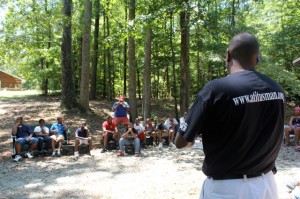Empowering Young Black Males
To excel in school, black male students need role models and dreams. Of all the challenges we face in education today, I can think of none greater than the challenge of motivating, educating, and empowering black male learners.
The fact that this group of students is in crisis is evident on multiple levels, starting with graduation rates. According to the Schott Foundation (2008), the U.S. high school graduation rate for black males is just 47 percent, compared with 57 percent for Latino males and 75 percent for white males. Alarming as this figure is, the situation becomes even more shocking in large urban school districts, such as New York City, Detroit, and Miami, where the graduation rate for black males ranges from 20 to 30 percent.
The crisis doesn’t begin when students drop out of school. In far too many cases, it begins before they even enter school. As they move through the grades, black male students as a group have low achievement levels, excessively high suspension and expulsion rates, and a disproportionate number of special education referrals (Kunjufu, 2005). In many of our urban middle and high schools, countless numbers of black male students are entering secondary school reading one to three years below grade level.
These school-related gaps culminate in black male adults who “are more chronically unemployed and underemployed, are less healthy and have access to fewer health care resources, die much younger, and are many times more likely to be sent to jail for periods significantly longer than males of other racial/ethnic groups.” Of course, many black male students do well in school and go on to live successful lives. Millions of black males have achieved great things—and that includes those who grew up in high-poverty and high-crime communities. But we can’t ignore the statistics that tell us that our education system is failing far too many of our young black males.
The Role Model Crisis 
As an advocate for youth males, I have frequent opportunities to talk with educators at all levels. A staggering number of elementary school teachers tell me they have run out of ideas on how to keep their black male students focused and inspired. Many teachers actually break down in tears during this conversation. They desperately want to help their black male students succeed, but they feel overwhelmed by the challenge.
What can we do?
As I examined this problem and searched for strategies that schools could implement, one thing struck me in particular—the reality that approximately 50 percent of black children in the United States live in households without a father figure present (U.S. Census Bureau, 2012). I began to ask myself, Who is going to provide our black male students with the proper male guidance, direction, leadership, and structure that they desperately need? I wanted my black male students to see adult males who were striving to fulfill their own potential and who were also committed to the growth and development of the younger generation. I felt that if many of these students had men in their lives whom they could relate to and identify with, they would look at their education differently and the probability for their success would increase exponentially. This is why we partnered with our local schools, community leaders, commissioners, businesses etc. to give our youth alternatives to the streets, drugs and gangs. It is so important that our 501c3 not for profit organization “A Titus Man, Inc.” receive the help, support of our community, donors and volunteers so that we can continue our guidance for youth males that are underprivileged and in need of our programs. We look forward to continuing our efforts in providing them with an opportunity (our motto) “A Pathway to a Successful Life.”
A Titus Man
“Growing men of Character.”


